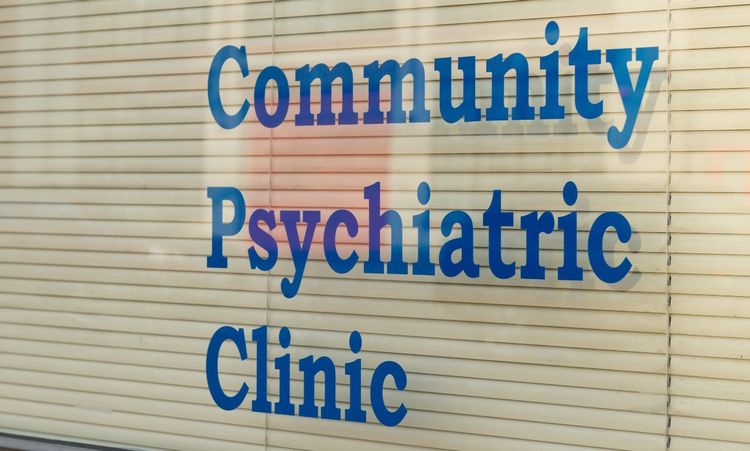Imagine walking into a relationship with a clear mind, free from the shadows of stress, anxiety, or past traumas. In such a state, your ability to express love becomes more authentic and resonant. Understanding how fixing our mental health improves our love language unveils a transformative journey where personal well-being enhances the way you connect and communicate with your partner. This article explores the intricate dance between mental wellness and love languages, offering you fresh insights and practical steps to nurture both your mental health and romantic relationships.
The Concept of Love Languages
What Are Love Languages?
Love languages, a term coined by Dr. Gary Chapman, represent the unique ways individuals express and interpret love. There are five primary love languages:
- Words of Affirmation: Verbal expressions of love, appreciation, and encouragement.
- Acts of Service: Actions that demonstrate love through helpfulness and support.
- Receiving Gifts: Giving and receiving tangible symbols of affection.
- Quality Time: Undivided attention and meaningful time spent together.
- Physical Touch: Physical expressions of love, such as hugging, kissing, or holding hands.
Understanding your and your partner's love languages fosters deeper connections and reduces misunderstandings in a relationship.
The Significance of Love Languages in Relationships

Recognizing and respecting each other's love languages is pivotal for relationship satisfaction. When partners articulate their love in a language understood by the other, it strengthens emotional bonds and enhances mutual appreciation. Conversely, neglecting love languages can lead to feelings of neglect and miscommunication, even in the healthiest relationships.
Consider this table illustrating how different love languages can affect relationship dynamics:
Love Language
Impact on Relationship
Words of Affirmation
Boosts self-esteem and reinforces emotional connections
Acts of Service
Demonstrates reliability and support
Receiving Gifts
Creates tangible memories and shows thoughtfulness
Quality Time
Fosters intimacy and shared experiences
Physical Touch
Enhances feelings of security and affection
The Connection Between Mental Health and Love
How Mental Health Affects Interpersonal Relationships
Your mental health profoundly influences how you relate to others, especially in intimate relationships. Conditions like depression, anxiety, or unresolved trauma can create barriers to effective communication, reduce patience, and heighten emotional volatility. When mental health is compromised, it's challenging to maintain the emotional stamina required for nurturing a loving relationship.
For instance, chronic anxiety might make you overly sensitive to perceived slights, while depression can lead to withdrawal and reduced emotional availability. These states not only strain your connection with your partner but also distort your ability to express and receive love in healthy ways.
The Impact of Mental Health on Love Language Expression
Mental health directly affects the how and what of expressing love. Here's how:
- Words of Affirmation: Low self-esteem or depression might hinder you from expressing positive affirmations, even if you feel them internally.
- Acts of Service: Mental exhaustion can make it difficult to perform actions that typically signify love, leading to frustration or resentment.
- Receiving Gifts: Anxiety may cause hesitation in giving gifts due to fear of judgment, while depression might result in neglecting this love language altogether.
- Quality Time: Mental health struggles can make it hard to engage fully during shared moments, reducing the quality of time spent together.
- Physical Touch: Conditions like social anxiety or depression can diminish the desire for physical closeness, affecting intimacy.
Understanding how fixing our mental health improves our love language starts with recognizing these challenges and actively working to address them.
Practical Steps to Enhance Mental Wellness
Developing Self-Awareness for Better Relationships
Self-awareness is the cornerstone of mental wellness and effective love language expression. By understanding your emotions, triggers, and patterns, you can navigate your relationship with greater clarity and empathy. Practices like mindfulness meditation, journaling, and therapy can enhance self-awareness, helping you recognize when mental health issues are affecting your interactions.
For example, if you notice that stress makes you less patient, you can implement coping strategies to manage stress, thereby maintaining a calmer and more loving demeanor with your partner.
The Role of Effective Communication
Effective communication bridges the gap between mental health and love language. Openly discussing your feelings, mental health struggles, and love language preferences fosters mutual understanding and support. It ensures that both partners feel heard and valued, reducing the likelihood of misinterpretations and resentment.
Here are some communication strategies:
- Active Listening: Truly hearing and validating your partner's feelings without immediate judgment or advice.
- Expressing Needs Clearly: Articulating what you need from your partner in terms of love language.
- Regular Check-ins: Setting aside time to discuss the state of your relationship and individual well-being.
Building Trust and Security in Partnerships
Trust is essential for both mental health and expressing love. A secure relationship provides a safe space to share vulnerabilities, reducing anxiety and fostering emotional intimacy. Building trust involves consistency, reliability, and transparency in actions and communications.
Steps to build trust include:
- Keeping Promises: Following through on commitments reinforces reliability.
- Being Honest: Transparent communication about feelings and challenges builds mutual respect.
- Showing Support: Being present and supportive during difficult times strengthens the emotional bond.
The Benefits of Improved Mental Health on Love Language
Increased Empathy Towards Partners
Enhancing your mental health cultivates empathy, allowing you to better understand and respond to your partner's emotional needs. Empathy fosters a deeper connection and enables you to speak your partner's love language more effectively, whether it's providing comfort, encouragement, or simply being present.
Better Emotional Regulation and Expression
Improved mental wellness equips you with the tools to manage your emotions constructively. This leads to healthier expressions of love, as you're less likely to react impulsively or negatively. Emotional regulation ensures that your love language is conveyed in a way that is supportive and nurturing.
Strengthened Capacity for Love and Affection
When your mental health is in a good place, you have more emotional energy and resilience to give and receive love. This enhancement means your expressions of love are more genuine and consistent, deepening the emotional intimacy in your relationship.
Nurturing Personal Growth Through Mental Health
Understanding Individual Needs in Relationships
Personal growth, fueled by mental wellness, helps you understand your own needs and those of your partner. This clarity allows for more tailored expressions of love, ensuring that both partners feel valued and fulfilled.
For instance, recognizing that you thrive on quality time while your partner values acts of service can guide you in balancing different love languages within the relationship.
How Personal Growth Enhances Love Languages

As you grow personally, your capacity to express and interpret love evolves. Personal development can lead to a better understanding of your love language and how to effectively use it, as well as an enhanced ability to appreciate and reciprocate your partner's love language.
Engaging in activities that promote growth, such as continuous learning, hobbies, and self-reflection, not only enriches your individual life but also adds depth to your romantic relationship.
Conclusion
Understanding how fixing our mental health improves our love language is a journey of self-discovery and mutual growth. By prioritizing mental wellness, you enhance your ability to express and receive love in ways that resonate deeply with both you and your partner. This synergy transforms relationships, fostering lasting emotional connections built on empathy, understanding, and genuine affection. Embrace this holistic approach to love and mental health, and watch your relationship flourish in unprecedented ways.




